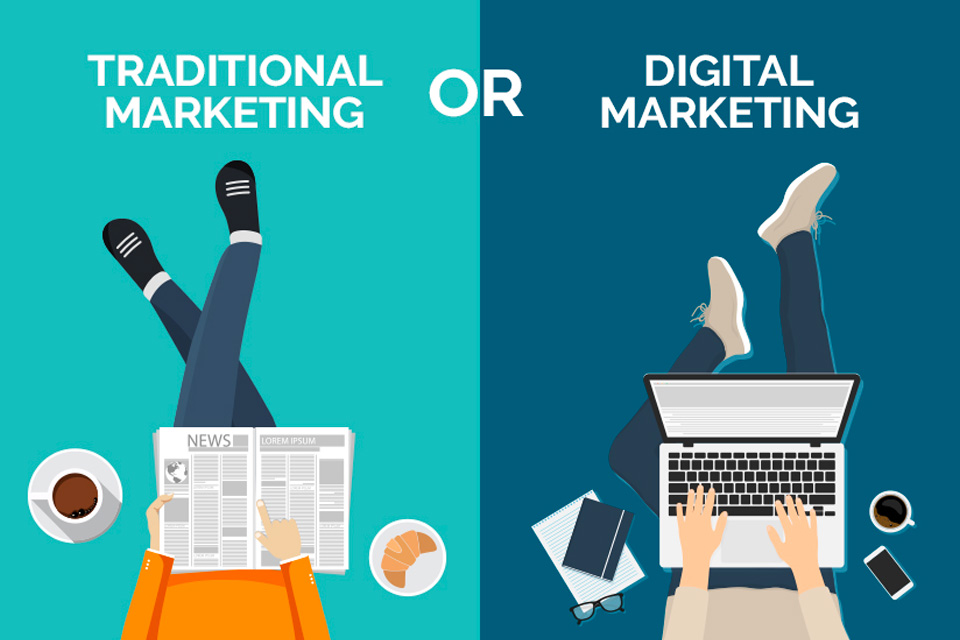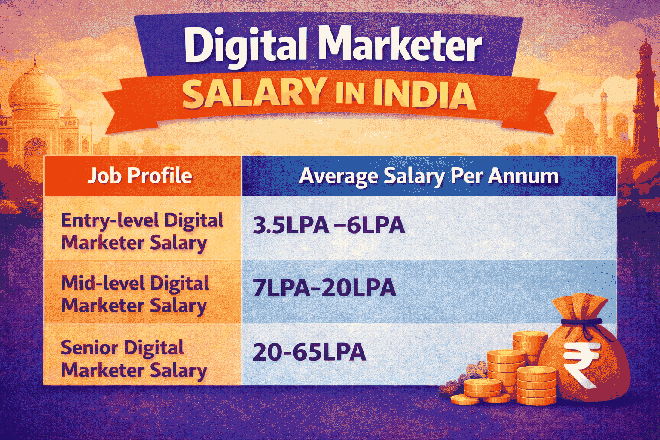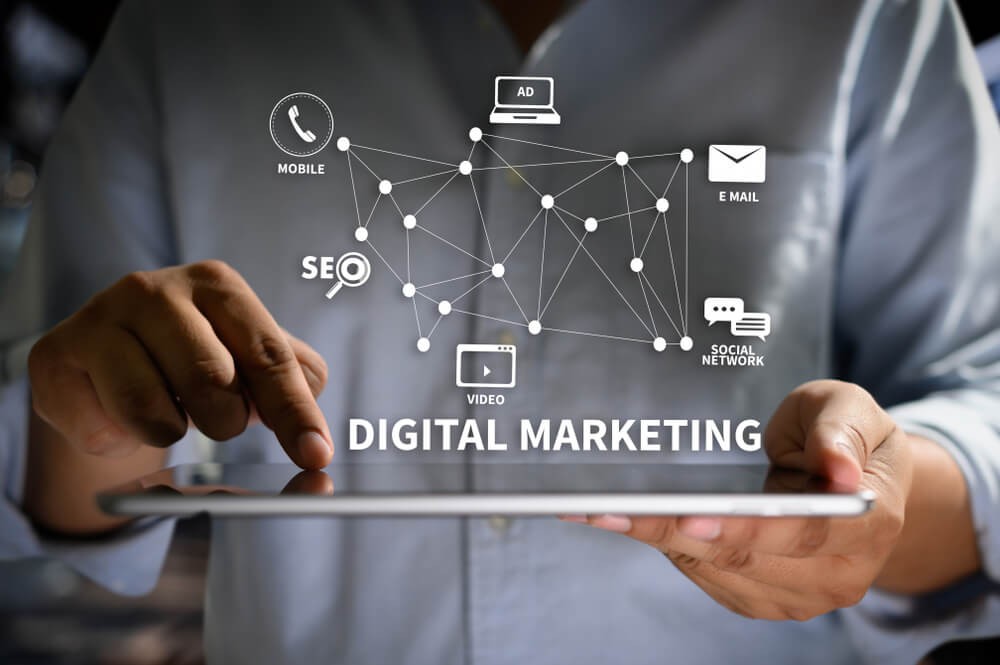Traditional Marketing vs. Digital Marketing: Key Differences
Both digital and traditional marketing strategies seek to accomplish the same objectives, which include reaching the target audience and promoting products and services. In contrast to digital marketing, which uses digital technologies and internet platforms to promote products and services, traditional marketing employs traditional approaches.
What is Traditional Marketing?
Traditional marketing is a type of advertising that reaches the target population through offline media and traditional means. It makes use of offline media such as billboards, radio, television, direct mail, and telemarketing. Businesses can broadcast their message to a huge audience with this one-way communication marketing strategy with little involvement. Typically, these promotional items are placed in areas where their intended audience is most likely to see, hear, or interact with them.
Read Also: SEO vs. SEM: Which One Should You Focus in 2025
Features of Traditional Marketing:
- One-way Communication: Organizations typically do not allow their audience to engage or offer input, instead delivering their messages in a one-way fashion.
- Offline Channels: It makes use of offline channels such as billboards, radio, TV, and periodicals.
- Tangible Materials: To spread its message or advertise a good or service, it also uses some physical materials. These materials include posters, flyers, brochures, and more.
- High Cost: Due to the high expenses of broadcasting, producing, and distributing physical goods, traditional marketing campaigns demand a significant financial outlay.
What is Digital Marketing?
Digital marketing is a type of marketing that reaches the target audience by utilizing digital technology and internet channels. The organization uses email, mobile apps, social media, the internet, search engines, and other digital avenues to do this. It is a two-way communication marketing strategy that enables the audience and the organization to communicate, engage, and offer comments and/or recommendations. The organization can measure the effectiveness of its campaigns, target particular audiences, and optimize plans with the help of digital marketing’s many tools and techniques.
Read Also: The Future of Marketing: Key Trends in Digital Marketing Courses for 2024
Features of Digital Marketing:
- Two-way Communication: Digital marketing enables businesses to communicate with their audience, get feedback and comments from them, and connect with them appropriately.
- Online Channels: It makes use of online channels such as search engines, mobile apps, social media platforms, email, and websites.
- Multimedia Content: To engage users across various web platforms, it makes use of multimedia content such as pictures, videos, infographics, etc.
- Cost: Digital marketing may be less expensive than traditional marketing. The reason for this is that digital marketing typically provides more advertising possibilities and lower overhead costs.

Difference between Traditional Marketing and Digital Marketing
Read Also: Top Trending Courses in 2024 for Students and Professionals
| Basis | Traditional Marketing | Digital Marketing |
| Meaning | In traditional marketing, campaigns can require a long lead time and are more difficult to change once they start. Traditional marketing is a type of advertising that reaches the target population through offline media and traditional means. | Digital marketing is a type of marketing that reaches the target audience by utilizing digital technology and internet channels. |
| Reach & Targeting | To reach a large audience, it usually employs a variety of media, such as print, radio, and television. | Digital marketing enables precise targeting based on demographics, interests, habits, and geography. |
| Cost | Especially for television commercials or print ads, it could be expensive. Expenses are often fixed and may not provide detailed ROI data. | Digital marketing offers a variety of low-cost options, from free advertising (organic social media) to pay-per-click advertising. The expense of digital campaigns is frequently lower. |
| Interactrivity & Enagement | Traditional marketing uses a one-way approach to communication that leaves no opportunity for participation or engagement. | Likes, shares, comments, reviews, and other two-way contact are made possible by digital marketing. |
| Flexibilty & Agility | In traditional marketing, campaigns can require a long lead time and are more difficult to change once they start. | Digital marketing allows for real-time adjustments depending on trends, performance indicators, and feedback. Campaigns can be readily modified or altered as necessary. |
| Measurability & Analytics | Traditional marketing uses metrics like reach, recall, and brand recognition, but it’s not always simple to quantify them precisely. | Numerous analytics tools are available in digital marketing to track user behavior, campaign effectiveness, conversion rates, and ROI. Continuous improvement and optimization are made feasible by data-driven insights. |
| Tangibility & Brand Presence | Print ads, billboards, and brochures are examples of tangible products that can leave an impression in traditional marketing. | The process of electronically promoting brands through online channels including social media, email, and webpages is known as digital marketing. |
| Global vs. Local Impact | Because it can have a significant local influence, traditional marketing is suitable for businesses that target specific geographic areas. | Digital marketing enables global reach, which is ideal for businesses wishing to expand overseas or establish connections with various target customers. |
If you prefer to enter the field of digital marketing quickly with advanced and focused knowledge or are looking to get promotions in your profession, a diploma would be a more suitable choice. We hope you like this comprehensive knowledge about traditional marketing and digital Marketing. To learn more about the digital marketing courses after the 12th, consult our AAFT team right away.
Read Also: India’s Highest Paying Certificate Courses for 2024: Top Job Opportunities
Traditional Marketing and Digital Marketing: FAQs
What benefits does traditional marketing offer?
Traditional marketing gives an organization flexibility by enabling it to employ a range of channels and tactics to customize its strategy, lets it reach a big audience, and provides tangible materials for in-person interactions with clients, such as flyers and brochures.
Does traditional marketing have any place in the modern world?
Indeed, traditional advertising still plays a significant role, particularly for certain businesses and target markets. Even though digital marketing is becoming more and more popular, traditional media can still be used to target those who are difficult to reach online and to support digital strategies.
What difficulties do businesses have while using digital marketing?
The ever-changing environment is one of the biggest problems that organizations face. Businesses are forced to keep up with the newest trends and strategies because of the unpredictable and ever-changing business climate. Additionally, top corporations with large marketing budgets and a strong market presence must compete with tiny businesses.
How can the effectiveness of digital marketing strategies be evaluated?
Conversion rates, website traffic, click-through rates, return on investment, and engagement metrics (likes, shares, reviews, and comments) are some of the measures used to gauge the effectiveness of digital marketing.
Is digital marketing appropriate for every type of business?
Even though digital marketing has many advantages for organizations, its efficacy varies depending on several elements, such as the target audience, industry, and organizational objectives. One organization may find a digital marketing plan more effective than another.











